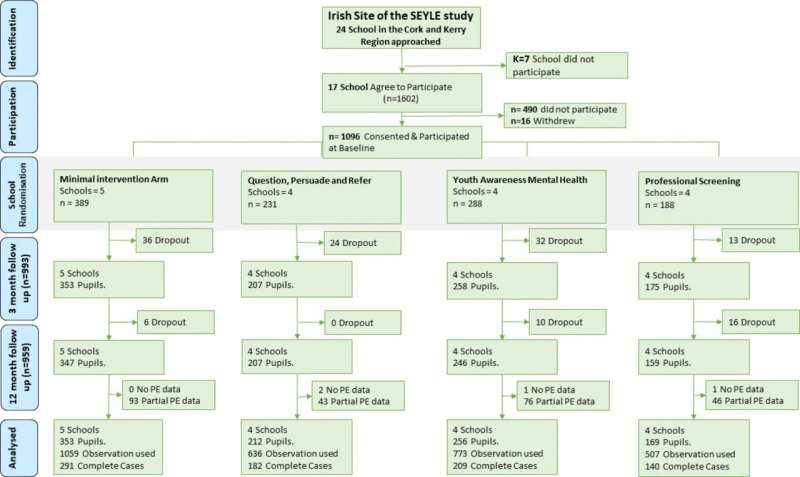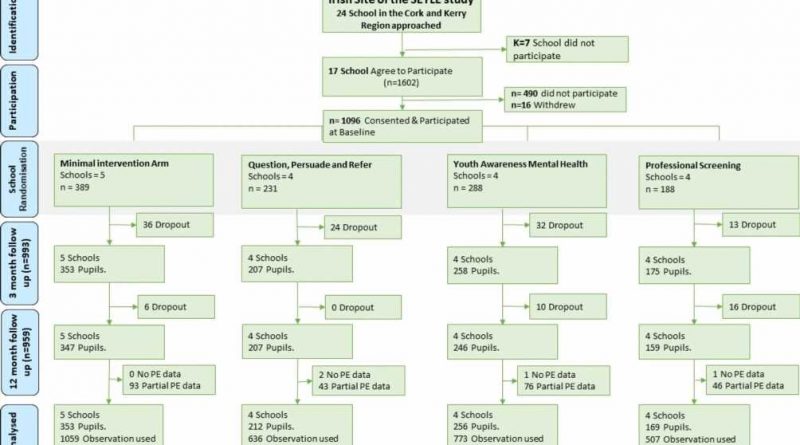Screening for mental health problems in school can reduce and prevent later psychotic experiences

In a first-of-its-kind study, researchers at RCSI University of Medicine and Health Sciences have found that a school-based screen for mental health problems, combined with a referral system, can be effective at improving and protecting the mental health of adolescents.
The research, published in BMC Public Health, is the first study to examine the impact of school-based interventions on preventing psychotic experiences, an early indicator of developing mental disorders in children and adolescents. Of the interventions tested, one consisting of a universal screener and selective intervention was found to both reduce the rates of, and prevent psychotic experiences at 12-month follow up.
Mary Cannon, professor of psychiatric epidemiology and youth mental health, Department of Psychiatry, RCSI, commented, “Prevention has two key objectives; to reduce the symptoms of mental health disorders, and prevent new incidence of symptoms. This study demonstrates that school-based interventions have the potential to be effective at both key aims of prevention, making a positive impact on public mental health.”
Lead author and RCSI Ph.D. student, Lorna Staines commented, “Psychotic experiences are particularly common in the adolescent population and are associated with a four-fold increased risk for psychotic disorder, and a three-fold increased risk for any mental disorder. This study has for the first time identified school-based programs as an effective route to prevent psychotic experiences.”
More information:
Lorna Staines et al, Investigating the effectiveness of three school based interventions for preventing psychotic experiences over a year period—a secondary data analysis study of a randomized control trial, BMC Public Health (2023). DOI: 10.1186/s12889-023-15107-x
Journal information:
BMC Public Health
Source: Read Full Article



